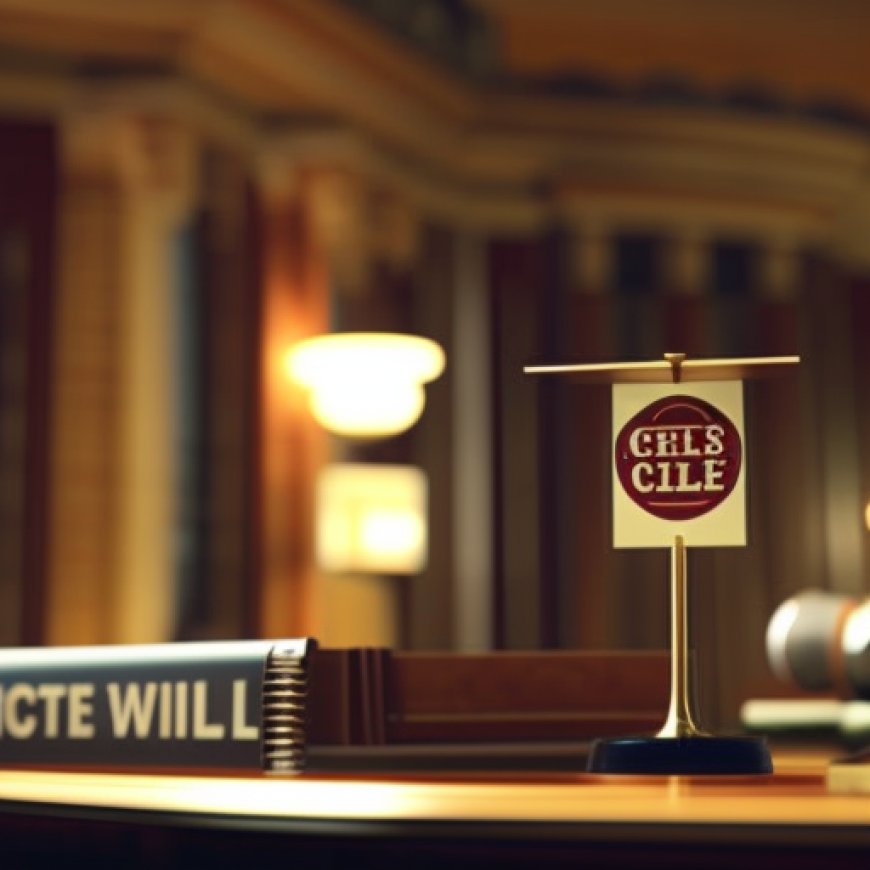‘College will become more affordable’: Bills aimed at higher education headed for Governor Polis’ desk as legislative session comes to an end
‘College will become more affordable’: Bills aimed at higher education headed for Governor Polis’ desk as legislative session comes to an end KKTV


Bills Aimed at Higher Education in Colorado

DENVER, Colo. (KKTV) – Bills aimed at higher education are headed for Governor Jared Polis’ desk as the legislative session comes to an end.
In the final days of the regular session, Colorado lawmakers passed a large number of bills, including two, in particular, being praised by a state school.
First Bill: Incentives for Post-Secondary Education
One bill that has gotten some attention is aimed at making the first two years of college free.
Titled Incentives for Post-Secondary Education, the bill creates a refundable state income tax credit for students and their families. It gives the money spent on tuition back in the form of a tax credit, starting January 1, 2025. To qualify, students must meet certain requirements:
- Enroll in post-high school education within two years of completion of a high school graduation or equivalent.
- Complete an application for federal student aid (FAFSA) or Colorado application for state financial aid (CASFA).
- Indicate on applications for FAFSA or CASFA that the student’s household income is $90,000 or less.
- Have a GPA of 2.5 or higher for the semester/term the incentive is being claimed for.
Per the bill’s language, institutions will need to electronically report each eligible student and provide them with a notice of eligibility.
Once it is signed into law, part of the funding will come from money that would have gone to taxpayers in the form of a TABOR refund, ultimately lowering the amount that goes back to taxpayers.
Pikes Peak State College President Lance Bolton said the bill will help bridge a gap, giving accessible education to more Coloradans.
“I think the students that are really gonna be helped the most are students who might be sort of colloquially known in higher ed as ‘donut hole students,’” President Bolton said. “Students who maybe are earning too much to be eligible for Pell grants, but still find affordability of college very difficult.”
He added that the bill could create a larger trend of more people being able to pursue higher education.
Second Bill: Higher Education Transparency and Credit Transfers
Another bill making its way to the governor’s desk deals with higher education transparency and credit transfers.
According to the bill’s text, it adds certain rights to students of higher education:
- Cost transparency
- A seamless transfer of credits for courses in the guaranteed transfer pathway matrix and a timely response on whether transfer credits will be accepted.
- The right to appeal a decision to not accept a student’s transfer credits.
- The right to know what work-related experiences or prior learning opportunities are awarded postsecondary credits at the school/institution a student is enrolled at.
President Bolton said there’s always been a problem with the transfer of credits, and that this bill will also help any student, especially lower-income students, who go to a community college to get credits before moving to a university.
“They transfer, and the university will say, ‘Yeah, we’ll accept all of your credits, but they’re gonna count as electives, and you’re still going to have to take our biology class, or our English class, or our math class, or maybe all of that,’” he said. “That’s not gonna happen anymore. Students are gonna be able to transfer those credits, and they will count towards the student’s major.”
Last year, the state’s Department of Higher Education said fewer students in Colorado are going to college. President Bolton said these bills, once signed, will make higher education more affordable and more accessible to Coloradans as a whole.
Sustainable Development Goals (SDGs)
These bills align with the Sustainable Development Goals (SDGs) set by the United Nations. The first bill contributes to SDG 4: Quality Education, by promoting access to affordable and inclusive education. It also supports SDG 10: Reduced Inequalities, by addressing the affordability gap for students who do not qualify for existing financial aid programs.
The second bill contributes to SDG 16: Peace, Justice, and Strong Institutions, by ensuring transparency and fairness in the higher education system. It also supports SDG 8: Decent Work and Economic Growth, by recognizing work-related experiences and prior learning opportunities for postsecondary credits, which can enhance employability.
Copyright 2024 KKTV. All rights reserved.
SDGs, Targets, and Indicators
-
SDG 4: Quality Education
- Target 4.1: By 2030, ensure that all girls and boys complete free, equitable, and quality primary and secondary education leading to relevant and effective learning outcomes.
- Indicator 4.1.1: Proportion of children and young people (a) in grades 2/3; (b) at the end of primary; and (c) at the end of lower secondary achieving at least a minimum proficiency level in (i) reading and (ii) mathematics, by sex.
-
SDG 10: Reduced Inequalities
- Target 10.2: By 2030, empower and promote the social, economic, and political inclusion of all, irrespective of age, sex, disability, race, ethnicity, origin, religion, or economic or other status.
- Indicator 10.2.1: Proportion of people living below 50 percent of median income, by sex, age group, and persons with disabilities.
Analysis
The article addresses two Sustainable Development Goals (SDGs) – SDG 4: Quality Education and SDG 10: Reduced Inequalities.
SDG 4: Quality Education
The article discusses a bill aimed at making the first two years of college free in Colorado. This aligns with SDG 4’s target of ensuring that all girls and boys complete free, equitable, and quality primary and secondary education leading to relevant and effective learning outcomes. The bill aims to provide accessible education to more Coloradans, particularly those who find college affordability difficult. This target is measured by Indicator 4.1.1, which assesses the proportion of children and young people achieving minimum proficiency levels in reading and mathematics.
SDG 10: Reduced Inequalities
The article also highlights a bill related to higher education transparency and credit transfers. This bill aims to address the problem of credit transfer and ensure a seamless transfer of credits for courses in the guaranteed transfer pathway matrix. By improving credit transfer processes, the bill seeks to reduce inequalities in access to higher education. This aligns with SDG 10’s target of promoting social, economic, and political inclusion for all individuals, irrespective of their economic or other status. The corresponding indicator for this target is Indicator 10.2.1, which measures the proportion of people living below 50 percent of median income.
Table: SDGs, Targets, and Indicators
| SDGs | Targets | Indicators |
|---|---|---|
| SDG 4: Quality Education | Target 4.1: By 2030, ensure that all girls and boys complete free, equitable, and quality primary and secondary education leading to relevant and effective learning outcomes. | Indicator 4.1.1: Proportion of children and young people (a) in grades 2/3; (b) at the end of primary; and (c) at the end of lower secondary achieving at least a minimum proficiency level in (i) reading and (ii) mathematics, by sex. |
| SDG 10: Reduced Inequalities | Target 10.2: By 2030, empower and promote the social, economic, and political inclusion of all, irrespective of age, sex, disability, race, ethnicity, origin, religion, or economic or other status. | Indicator 10.2.1: Proportion of people living below 50 percent of median income, by sex, age group, and persons with disabilities. |
Copyright: Dive into this article, curated with care by SDG Investors Inc. Our advanced AI technology searches through vast amounts of data to spotlight how we are all moving forward with the Sustainable Development Goals. While we own the rights to this content, we invite you to share it to help spread knowledge and spark action on the SDGs.
Fuente: kktv.com

Join us, as fellow seekers of change, on a transformative journey at https://sdgtalks.ai/welcome, where you can become a member and actively contribute to shaping a brighter future.







